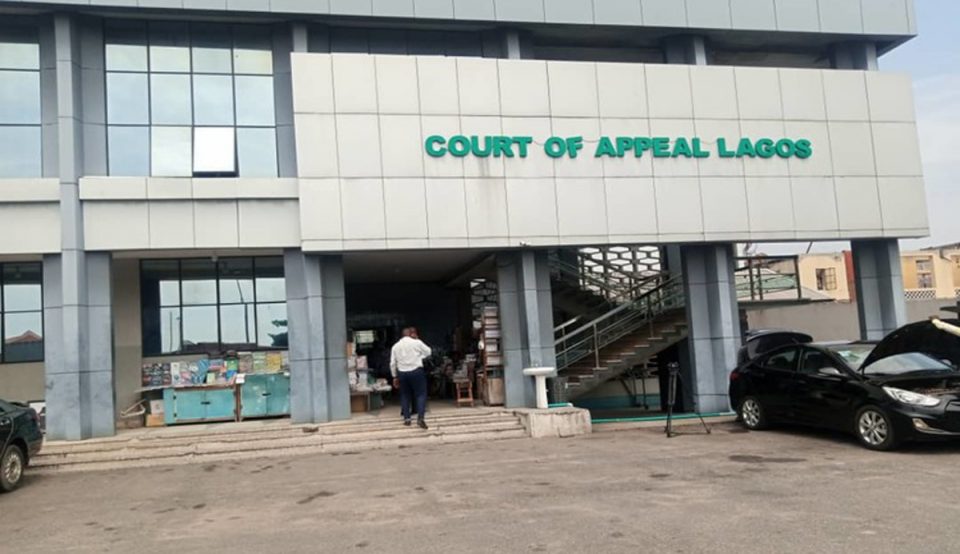In the appeal filed by the Labour Party’s Gbadebo Rhodes-Vivour and the Peoples Democratic Party (PDP) and its candidate, Abdulazeez Olajide Adediran, contesting Governor Babajide Sanwo-Olu’s reelection, the Court of Appeal, located in Lagos, has scheduled its ruling for Wednesday, Nov. 15.
The parties to the appeal were notified by the court that the judgment would be rendered at 3 p.m. on Wednesday.

Following the parties’ arguments, the Court of Appeal panel headed by Justice Yargata Nimpar reserved judgment in the two cases on November 7.
The Election Tribunal unanimously dismissed the two cases on 25 September and affirmed the re-election of Governor Sanwo-Olu and his deputy, Obafemi Hamzat.
In his address before the judges, Rhodes-Vivour’s main attorney, Olagbade Benson, asked the court to approve the appeal, provide the reliefs sought, and set aside the Tribunal’s ruling of September 25th.
He further asked the court to interpret Section 182 (1) (a) of the Constitution and its implications for the second and third respondents’ qualifications.
On October 7th, Gbadebo-Rhodes Vivour submitted his notice of appeal, which included 21 grounds for appeal, contesting the ruling of the State Governorship Tribunal, which affirmed Gov. Babajide Sanwo-Olu’s return.
The tribunal erred in law, according to the appeal, when it relied on the Court of Appeal’s ruling in Peter Gregory Obi & Anor. Vs. INEC & Ors. to strike out the evidence of all his subpoenaed witnesses.
In Grounds 2 and 3, the appellants maintained that the Tribunal erred in law when it determined that the three witnesses, PW7, PW8, and PW9, were not witnesses who could be subpoenaed and therefore discounted their oral evidence and documents because they were not listed as witnesses and their sworn statements did not accompany the Petition and documents frontloaded.
In Grounds 4 and 5, Rhodes-Vivour claimed that the Tribunal erred in law when it determined that the Appellant bears the burden of proving the specific Oath of Allegiance subscribed to by the Deputy Governor, as well as evidence of his renounced citizenship, and that exhibits placed before the tribunal on this issue were deemed abandoned.
It further alleged that the panel failed to disqualify Sanwo-Olu and his deputy after discovering that Hamzat was a naturalised citizen of the United States of America who made a statement of loyalty to that nation.
Other reasons for the petition included the tribunal’s refusal to disqualify Gov. Babajide Sanwo-Olu and his deputy after determining that Dr Obafemi Hamzat is a naturalised United States of America citizen who declared loyalty to that nation.
According to Section 177 of the 1999 Constitution, only a Nigerian citizen by birth is eligible to run for the post of Governor or Deputy Governor of a State.
Chief Wole Olanipekun, counsel to Governor Sanwo-Olu and Dr. Obafemi Hamzat, Senior Advocate of Nigeria, asked the court to dismiss the appeal.
He said that the appellant’s claim of dual citizenship was never brought to the panel.
They are now presenting a dual citizenship case, believing that this is a trial court.” When the tribunal discovered that the supposed oath of loyalty to a foreign government was not before it, it dismissed it. “We respectfully request that your Lordship dismiss this appeal,” he added.
The PDP and its governorship candidate, Azeez Olajide Adediran, often known as Jandor, submitted 34 grounds of appeal against the Tribunal’s decision, which proclaimed Governor Babajide Sanwo-Olu the victor of the election.
According to Jandor, in the cause of action, “Contrary to the misleading conclusion of the Tribunal, the issue of disqualification of the winner of an election, is both a pre and post-election dispute, and it was highly erroneous of the Tribunal to treat it as merely a pre-election issue”.
The candidate and his party also restated the reliefs sought in their petitions, requesting the disqualification of APC and Labour Party candidates.
Jandor also criticised the tribunal for excluding the Labour Party and its candidate from his petition, even though he had made multiple charges of violations against Rhodes-Vivour. He stated that the law recognises that everyone who is accused must be made a party in such an action.
In his appeal, the PDP candidate also stated that he was entitled to raise concerns about Gov Sanwo-Olu’s tertiary qualifications, which were based on forged A Level WAEC certificates, as evidenced by some of the materials he presented to the court.
Among other things, he wants the Court of Appeal to rule that the tribunal lacked authority to rule that the several names on the certificates given by Sanwo-Olu all belong to the same individual.
Sanwo-Olu and Hamzat were not qualified to run in the Governorship Election on Saturday, March 18, 2023.
All votes cast in the election for both candidates and the APC were deemed invalid due to the ineligibility of the second and third candidates to run.
That Jandor, having received the third most votes in the election and having met the requirements of the Electoral Act 2022, is the legally competent candidate to be returned as the winner of the said election.
In their answer, counsel for Sanwo-Olu and Hamzat, Senior Advocate of Nigeria Bode Olanipekun, argued that the reliefs sought by the appellants are such that they must win based on their petition rather than the respondent’s weakness.
He said that the appellants failed to show anything before the lower tribunal and that the burden of disproving any fact was not shifted to the respondents.
“In this case, the petitioner tendered the alleged false A Level WAEC Certificates from the bar, but was unable to produce before the Court the Original document from which the exhibit was counterfeit.”
“It is trite law that where oral evidence and documentary evidence tendered by a party in proof of a fact says different, that party cannot be said to have led credible and cogent evidence in proof of that fact,” he added.
He then asked the court to dismiss the appeal.




Leave a reply